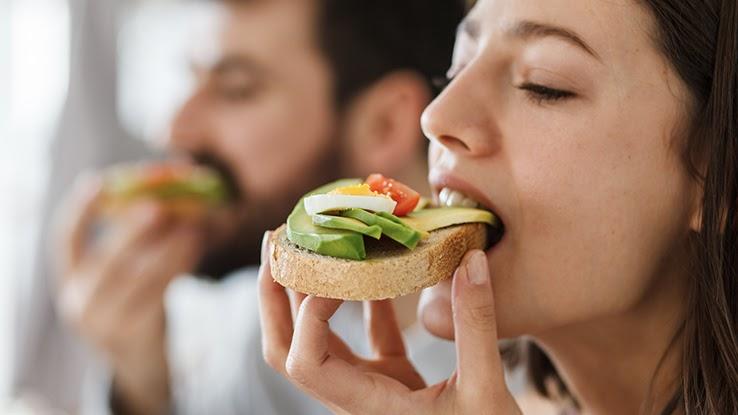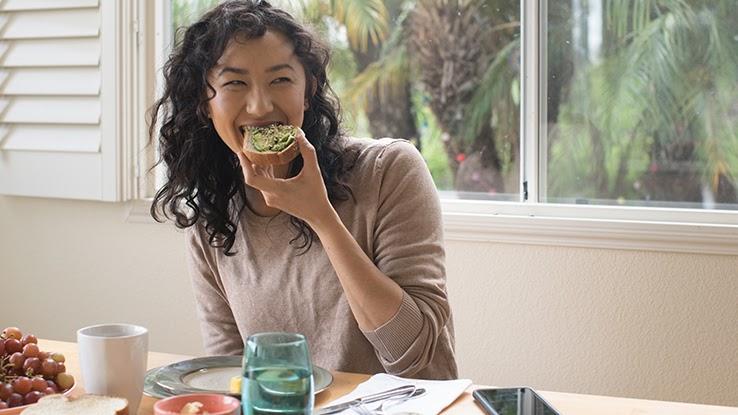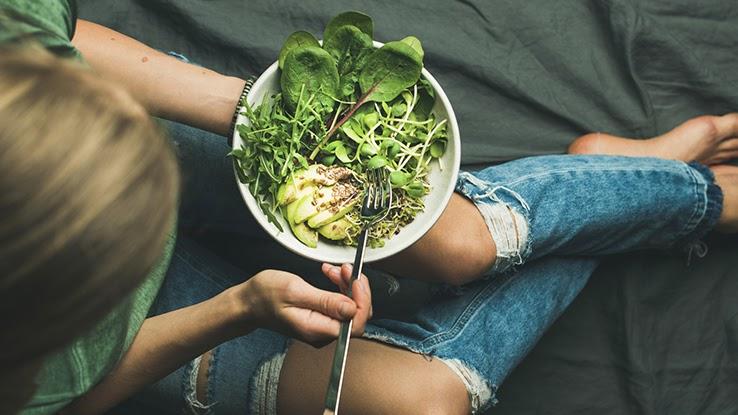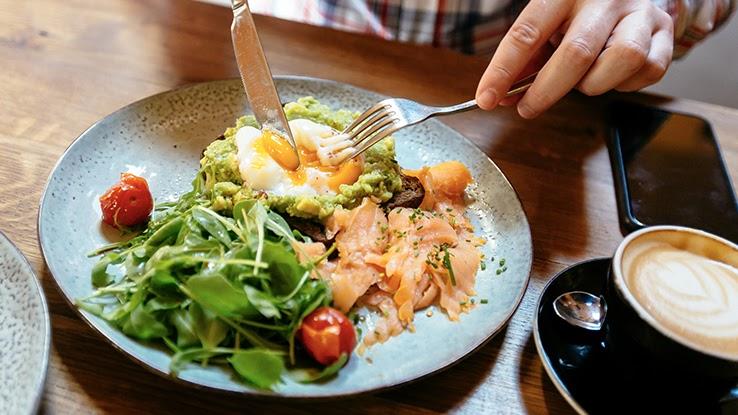Eat What You Love Quick and Easy Recipes

It's no secret that avocados are great for your heart, are packed with healthy fats and can provide a number of health benefits. You may not have known, however, that eating avocados can potentially improve your vision and even help a baby's brain develop. And did you know an avocado actually has more potassium than a banana? We'll go over these and other lesser-known facts about the ever-delicious avocado below. From baking to breakfast, there's a reason the avocado is known as a superfood — and plenty of reasons why you should add this smooth fruit to your diet.
It's not a great feeling to eat a light, healthy lunch only to find yourself feeling famished an hour later. But instead of reaching for a bag of chips at 2 p.m. to quell your hunger, load up on avocados at lunch. Your body digests healthy fats like those found in avocados slower, which means these dietary fats can keep you feeling full longer.

You'll want to keep in mind that, as delicious as avocados are, their high fat content means they're calorically dense. If you're counting calories, remember that a serving of this fruit is about 50 grams, or a third of a medium-sized avocado, which gives you about 100 calories. It can be helpful to weigh out a serving on a kitchen scale several times so you get used to the typical portion size.
Avocado Boosts Growth and Development in Kids
There's a reason many parents choose to feed their babies avocados as they transition to a real-food diet. Not only are avocados soft and easy for a baby to eat, but they're also packed with nutrients to help them grow. In just a fifth of an avocado, you'll find 3.5 grams of unsaturated fat. Unsaturated fat can help your baby gain essential weight. It's also critical for the development of their brain and central nervous system.

The best part about feeding your baby avocado is that there's almost zero prep involved — just peel off the skin and mash it with a fork. You can also cut it into cubes or slices for your baby to grab, so there's no need to break out a food processor or do any cooking.
Avocados Might Reduce Your Blood Pressure
If you have high blood pressure, avocados are a great addition to your diet. Avocados are surprisingly very low in sodium. So, instead of using butter in a recipe, for example, you can use avocado as a substitute for salted butter to help limit your consumption of salt and potentially keep your blood pressure lower as part of a low-sodium diet.

Avocados also contain more potassium than a banana. While people with high blood pressure often choose bananas as a heart-healthy snack, avocado may be an even better choice.
Eating Avocado Could Help Your Eyesight
As we age, many of us tend to experience vision loss that commonly comes from a condition called macular degeneration. This means that your macula, which is a small pigmented area on your eye near your retina, thins — a process that causes your vision to become blurry. Here's where avocado comes to the rescue. This powerful fruit contains substances that have been shown to reduce the risk of degeneration in your eyes. Eating more avocado as you age may keep your eyesight sharp and prevent vision loss or the formation of cataracts.

Avocados Are a Great Source of Fiber
When you think of fiber-rich foods, bran muffins often come to mind. You may be happy to learn that avocados are also loaded with fiber. The type of fiber present in these fruits is called soluble fiber, which helps to feed your body with gut-friendly bacteria. Soluble fiber also absorbs water as you digest it to create bulk that keeps you feeling full. What's more is that the fiber in avocados digests slowly, which could potentially help you lose weight and also limit spikes in blood sugar.

Eating Avocados Helps Your Body Absorb Other Nutrients
Certain nutrients that your body needs are fat soluble, meaning they dissolve in fat, not water, so your body can absorb them. For your body to fully utilize fat-soluble vitamins, you need to eat healthy fats so the vitamins can break down and you can use them effectively. Vitamins A, D, E and K are all fat soluble. Adding more avocado to your diet can help your body move these good vitamins and minerals from other fruits and veggies you're eating through your digestive tract.

You'll absorb more antioxidants from the other foods you're eating as well. This means that by eating avocado with a meal, you're also boosting the nutrients you get from the rest of your plate.
Avocados May Reduce Your Risk of Developing Diseases
Avocados aren't just great for helping your body absorb nutrients from the other foods you eat; they're also packed with healthy substances of their own that may play a role in reducing your risk of developing some diseases. The fats in avocado can help lower "bad" LDL cholesterol, and having lower levels of this type of cholesterol reduces your overall risk of heart disease and stroke.

Avocados are also replete with a number of anti-inflammatory compounds that may provide some relief from symptoms of arthritis. These include monounsaturated fats, lutein and vitamin E.
Avocado Makes a Great Baking Substitute
Avocados are great substitutes if you're looking to use less butter or mayonnaise. These fruits have the same consistency and smoothness, but without all the saturated fat and sodium. You can use them as a creamer or thickening agent as well. One cup of butter in a recipe is equal to one cup of mashed avocado.

Here are a few easy places to sub in avocados in your favorite recipes:
- In a smoothie to replace dairy
- In sauce or dressing recipes to replace mayonnaise
- As baby food alone or mixed with low-fat veggies
- As a binder in tuna, chicken and egg salads
- In place of sour cream
- In a cream pasta sauce instead of heavy cream or milk
Resource Links:
https://health.clevelandclinic.org/can-you-eat-too-much-avocado/
https://www.ncbi.nlm.nih.gov/books/NBK53550/
https://snaped.fns.usda.gov/seasonal-produce-guide/avocados
https://kidshealth.org/en/parents/fat.html
https://academic.oup.com/jn/article/129/11/2094/4721978
https://californiaavocado.com/lifestyle/california-avocados-as-a-perfect-first-baby-food/
https://ods.od.nih.gov/factsheets/Potassium-HealthProfessional/
https://www.mayoclinic.org/diseases-conditions/dry-macular-degeneration/symptoms-causes/syc-20350375
https://pubmed.ncbi.nlm.nih.gov/12766044/
https://pubmed.ncbi.nlm.nih.gov/16723441/
https://medlineplus.gov/ency/article/002136.htm
https://www.mayoclinic.org/healthy-lifestyle/nutrition-and-healthy-eating/in-depth/fiber/art-20043983
https://baileymedicalcenter.com/blog/water-soluble-versus-fat-soluble-vitamins-what-does-mean-your-health
https://www.ncbi.nlm.nih.gov/books/NBK218749/
https://pubmed.ncbi.nlm.nih.gov/15629237/
https://health.clevelandclinic.org/why-avocados-are-a-healthy-addition-to-your-diet/
https://www.arthritis.org/health-wellness/healthy-living/nutrition/healthy-eating/best-fruits-for-arthritis
carterdaithis1970.blogspot.com
Source: https://www.symptomfind.com/nutrition-supplements/nutritional-benefits-avocado?utm_content=params%3Ao%3D740013%26ad%3DdirN%26qo%3DserpIndex&ueid=bb966272-49d4-433a-bd08-38212806276c
0 Response to "Eat What You Love Quick and Easy Recipes"
Post a Comment